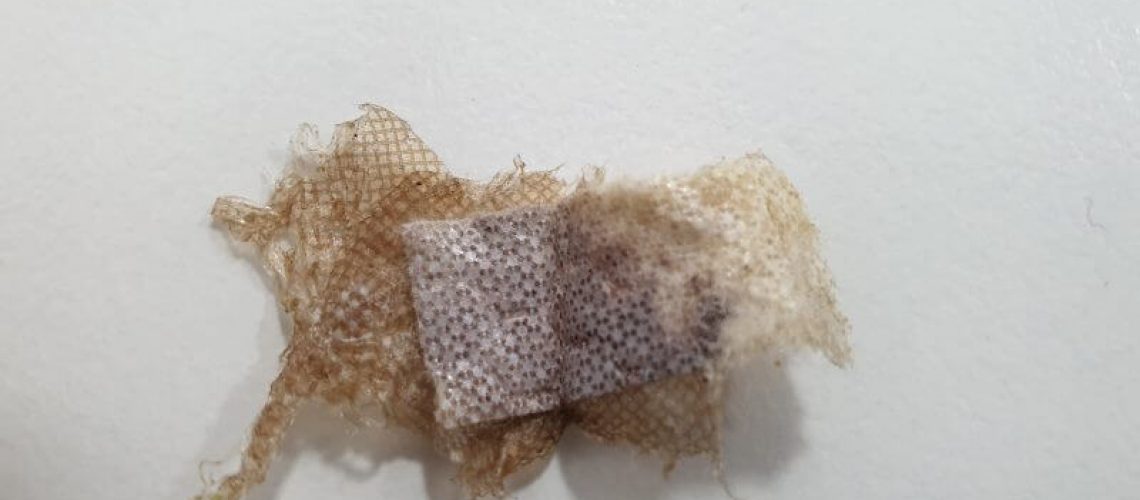Recently I had the horrible experience of chewing into a used bandaid when eating a kebab. We all know that it is an unacceptable practice to find a band aid in food, but what are you meant to do if you actually eat one?
What are the risks?
Worst case...hepatitis?
Hepatitis is a viral disease that affects the liver.
It has a wide range of symptoms with the most famous one being jaundice – the yellow discoloration of the skin. That’s not the end of the world.
The other symptoms, however, are the problem. They include vomitting, tiredness, abdominal pain and diarrhoea. And it’s not like an overnight case of food poisoning. It will last months or years. In some cases it will result in acute liver failure.
It also takes weeks for the symptoms to appear.
How?
While there are actually 5 types of hepatitis, the two that are of concern are Hepatitis A and Hepatitis B.
My G thought Hepatitis A was the more likely risk, but I suspect that is because Hepatitis A is transmitted via food. The main issue I have with this theory is that it is typically because of cross contamination with faeces.
Hepatitis B, on the other hand, is transmitted via blood and body fluids. In theory, it can NOT be transmitted by contaminated food or water.
The internet wasn’t being too helpful at this stage. I decided to call Hepatitis Australia (1800 437 222) to get some more information.
If someone has Hepatitis A, there is a chance you will get it via food, and that’s got nothing to do with the band aid. (Technically the presence of the band aid shows the cafe or manufacturer have hopeless food safety procedures and is a bad sign)
Hepatitis B, on the other hand, needs the virus to get directly into your blood stream. Swallowing it won’t be enough. For most healthy people, this isn’t a issue.
If, however, you have open wounds in your mouth (gum disease, ulcers etc) then there is a slight risk.
Now the conversation was moving into the more extreme “but what if” type scenarios.
So do I panic?
My GP is still treating this as a minor risk, and is doing the tests the apply to someone who accidentally stepped on a used syringe. This involves a blood test straight away to prove that I didn’t have any disease to start with, and then another blood test in 6 weeks.
I should get the all clear in 6 weeks, but if I do have hepatitis then I have clear evidence that the cafe or manufacturer were at fault.
But I don’t have to panic in between.
What else needs to happen?
Report it.
Report it to the appropriate authority. In my case, I had to report it to the local council who will investigate.
They will then decide if it is the cafe’s fault and deal directly with the cafe, or if it was the manufacturer, and then escalate it to the Food Authority.
Social media?
An interesting, and potentially very damaging, course of action is to publish it on social media. How much of an impact it will have will obviously depend upon your social network.
For now, I’m holding back until I hear back from the council, but I was really not impressed when the owner tried to deny the complaint and said it was “skin” and all was fine.
Could it have been avoided?
Absolutely.
There are some very simple steps that any food manufacturer, cafe or restaurant can take to ensure that this never happens:
- Blue bandaids: Blue bandaids are specifically designed for the food industry, to make it obvious when a bandaid has fallen into something.
Of course, that’s too late and more can be done before that. - Gloves: If you do have a bandaid on your hand then wear gloves – but remember, you need to change gloves as often as you would be washing your hands.
- Finger cots: An alternative to gloves are “finger cots”. They are basically just a finger size glove. They look like a very small condom, and I don’t think I need to say much more.
- Accountability: If staff are wearing bandaids, there needs to be a regular check to ensure it hasn’t been lost.
